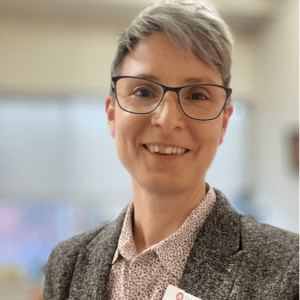Cultures, Stigma and Alzheimer’s

Penny Patnaude, founder of Caregiver Strategist LLC
People from around the world continue to hold stigma towards cognitive impairments, regardless of their ethnicity — especially adults in the later stages of life. They fear realizing they may have a prevalent gene, or believe they recognize early symptoms of dementia in themselves.
The uncertainty of losing one’s memories and independence is frightening. Acceptance for some is like giving in, while denial from others is inconceivable.
The stigma associated with dementia crosses a majority of cultures. This stigmatization slows the process of seeking out understanding and medical intervention in the early stages of cognitive dissonance. As the population changes and life spans increase, we need to become comfortable with dementia.
Alzheimer’s is a diagnosed disease that has become known around the world. Organizations like the Alzheimer’s Association and Alzheimer’s Foundation of America (AFA) receive endorsements from entertainers, politicians, and other public figures who lost a loved due to symptoms from dementia. Still, cultures remain plagued by the stigma of Alzheimer’s and dementia.
While Latinos and African-Americans are the largest minority groups in the United States, a paucity of studies exists on non-white populations diagnosed with types of dementia. This is particularly problematic as Latinos and African-Americans are fifty percent more likely to develop Alzheimer’s than whites.
Dr. Memhet Oz’s mother has Alzheimer’s. During a recent speech at an AFA Seminar, Dr. Oz publicly admitted to having guilt because he might have been in denial concerning changes in his Mom. Rejection is associated with emotions like pain, guilt, or shame. It’s easy to understand how previous generations succumbed to various beliefs and stigmas concerning cognition difficulties.
Not understanding there is a disease in control of the behavior. It is often difficult for a family to acknowledge the symptoms and the likelihood of an ill filled future. Caregivers may fear from earlier experiences of cruelty from unsympathetic people. However, we no longer live in the dark ages, and every 66 seconds, a person is diagnosed with Alzheimer’s. And before COVID-19, Alzheimer’s was the 6th leading cause of death.
Cognitive impairment is real, and stigma is attached. One does not need to be old, to suffer from issues with cognition. Chronic Traumatic Encephalopathy (CTE) will develop into dementia, soldiers subjected to loud blasts, and athletes diagnosed with head trauma.
The elimination of the stigma attached to neurological conditions will make it easier for families to seek early intervention during a disease’s beginning stages. Elementary education on dementia in the health curriculum is needed. Advanced studies for healthcare professionals on all types of dementia will benefit the practitioner and patients with an accurate diagnosis.
Families from any background can learn to eliminate stigmas related to dementia by trying some of the following methods:
- Openly discuss and identify personality and behavioral changes: confusion, getting lost, a difference in appearance (makeup, hair, body odor), unusual or change in language/speech.
- Make sure to watch how the person walks. Do they tend to fall often? Do you notice more bruises? Is there a change in sleep patterns? Share the information with family, make them aware and ask for recommendations on how they can help with care.
- Loss of appetite may be due to medication or a loss of taste. People with cognitive disabilities may forget how to eat, can’t identify food, or have problems swallowing. Eating problems are most prevalent in the later stages of the disease. There are numerous products available on the market to assist with eating issues. Talk about changes in appetite and medications.
- Seek help from organizations your family associates with, church, community groups, clubs. Members of groups will often bring care packages, pay visits, or call to check in. Join online groups for caregivers and families. They help to connect people with an understanding of similar issues. Members have lots of suggestions and can offer beneficial info. Find a group specific to the disease, if possible.
- Suggest the family hold monthly check-ins to check in and share relevant information on the condition, including books, magazine articles, movies, and documentaries on how other families cope with the stress of being a caregiver. It is also another health check-in for the caregiver. People who attend the meeting will be the individuals most likely to assist with specific tasks.
If you need help holding it together as a caregiver, reach out to a practitioner in the field who has personal experience with caregiving for people with dementia. Caregivers need to protect and support family members with a plan future care. All of the above suggestions will ease discomfort and anxiety for the client and family. Speaking honestly and openly about dementia will wear the stigma down. Eliminate the shame of the disease by addressing issues associated with dementia.

Penny Patnaude is a former caregiver for loved ones with dementia. She is the founder of Caregiver Strategist LLC, a company that specializes in dementia care education and training for families and healthcare professionals responsible for people diagnosed with dementia.
Penny’s certifications include Dementia Care Practitioner and Trainer, Consultant, Educator, and Facilitator. Penny holds an MA and BA. She is author of Caregiver Mantra Meditations and is a speaker, wife, mother, and advocate for all caregivers. For more information, visit www.caregiverstrategist.com.
Related Articles
Topics: Alzheimer's/Dementia , Featured Articles , Resident Care










